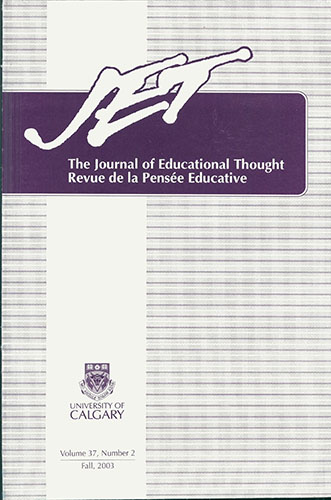The Effect of Educational Input on the Development of Sociolinguistic Competence by French Immersion Students: The Case of Expressions of Consequence in Spoken French
DOI:
https://doi.org/10.55016/ojs/jet.v37i3.52668Abstract
In this paper we discuss the results of a comparative study examining the words used by 41 Grade 9 and 12 OntarioFrench immersion students to express the notion of consequence intersententially (i.e., between two clauses). The immersionstudents' usage is compared to that found in: a) the spoken Frenchof Quebeckers, b) the in-class speech of a sample of French immersion teachers, and c) a series of French language artsteaching materials used in French immersion programs.The comparison reveals that this notion of consequence is expressed bytwo variants, namely alors and done, that are used with differential frequencies in all four corpora, another variant, namely (9a) faitque, that is used almost exclusively by the speakers of Quebec French and a final variant, namely so, that is used only by the immersion students. Explanations for these findings are tied to a number of factors (e.g., the differential sociostylistic values attached to these variants, and inter- and intra-systemic properties of the variants). For instance, the absence of the frequent variant(9a) fait que in the student and educational corpora reflects this variant's vernacular status in Quebec French and, hence, its avoidance in the students' educational input. Also, the students' useof so is attributed to their not having fully automatized the French conjunctions of consequence and their occasional switching to thisEnglish equivalent. Finally, we discuss the pedagogical implications of our findings.
Downloads
Published
Issue
Section
License
The Journal of Educational Thought retains first publication rights for all articles. The Journal grants reproduction rights for noncommercial educational purposes with the provision that full acknowledgement of the work’s source be noted on each copy. The Journal will redirect to the appropriate authors any inquiries for further commercial publication of individual articles. All authors wishing to publish in JET will be asked to fill in and sign a Consent to Publish and Transfer of Copyright agreement.
Authors must affirm that any submission to JET has not been and will not be published or submitted elsewhere while under considration by JET.

